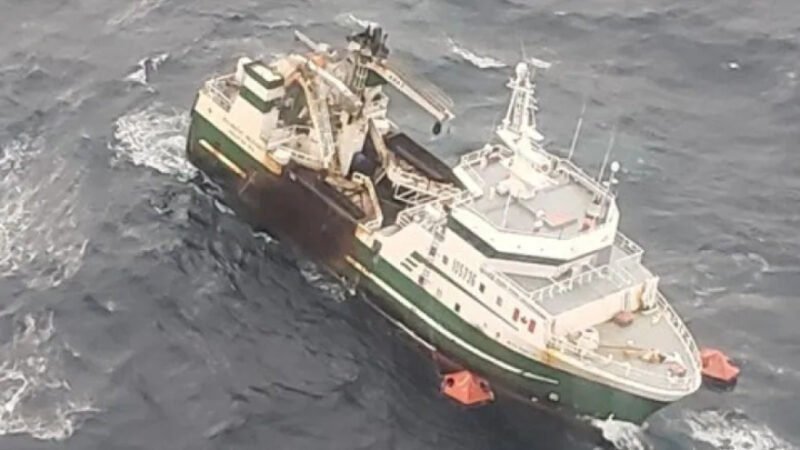The Transportation Safety Board of Canada (TSB) has released its investigation report into the sinking of the fishing vessel Atlantic Destiny, expressing safety concerns about crew knowledge of CO2 fire suppression systems. The report details the catastrophic engine failure and subsequent sinking of the trawler on March 2, 2021, due to an explosion and fire caused by engine failure. Despite the entire 31-person crew being evacuated, the ship ultimately sank the following day. The investigation found that the crew’s use of the fixed fire suppression system led to the re-ignition of the fire, as they did not wait for the room to cool before re-entering.
The TSB expressed concerns about the crew’s lack of understanding of the proper use of fixed CO2 fire suppression systems, which has been a factor in several other incidents in Canada and around the world. In this case, the senior deck officers were not required to have MED Advanced Firefighting training, meaning they had never been formally trained in the use of fixed CO2 fire suppression systems. The TSB’s safety concerns indicate a potentially unsafe condition, and if further data confirms this to be systemic, it may lead to a Board recommendation for industry and regulatory changes.
Overall, the TSB’s investigation report into the sinking of the Atlantic Destiny highlights the need for improved crew training and understanding of the pre- and post-release phases when using fixed CO2 firefighting systems to prevent similar incidents in the future.







